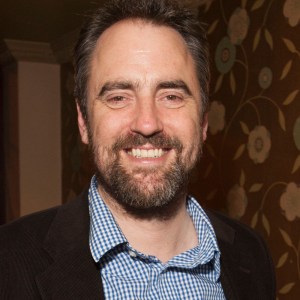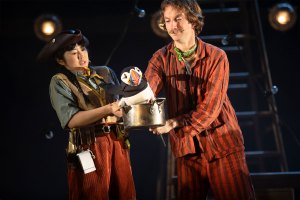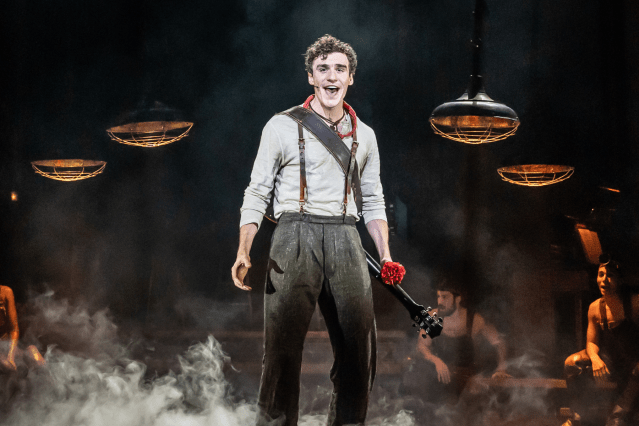Changing of the Guard: Jeremy Herrin at Headlong
As he prepares to open ”The Nether” in a co-production with the Royal Court, Jeremy Herrin discusses taking on ‘the best job in British theatre’
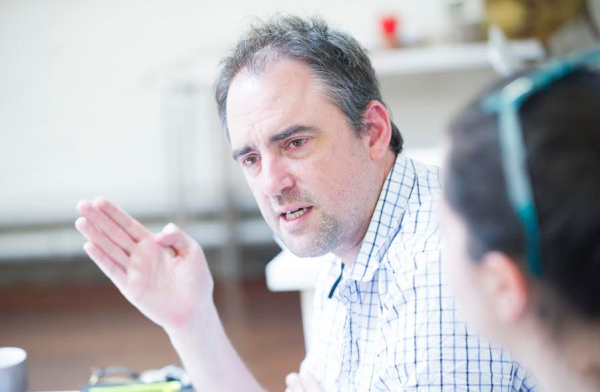
Prior to joining Headlong in September, Jeremy Herrin (pictured) was deputy artistic director of the Royal Court (between 2009 and 2012), and has also worked at the National Theatre, Shakespeare's Globe and the Live Theatre, Newcastle, where he was associate director from 2000 to 2008.
His recent directing credits include This House (NT), No Quarter (Royal Court), Absent Friends (West End), Much Ado About Nothing (Globe) and the RSC's adaptation of Hilary Mantel's Man Booker prize-winning novels Wolf Hall and Bring Up the Bodies.
How did you become a director in the first place?
I was always interested in being in school plays and I used to get frustrated if I didn't have a lot to do. I soon realised this was my desire to be part of the entire process, so my teacher suggested that I direct something – I tried it and I really enjoyed it and I don't think I've had any doubts about my chosen path since doing it as a 17-year-old.
Though you trained as an actor?
I did – I went to the Royal Scottish Academy of Music and Drama, but it was my way of learning how to work with actors. I thought I should go and train as an actor in order to better understand how to work with them.
Why did you want to join Headlong?
You could argue it's the best job in British theatre in that, as an artistic director, you're not weighed down by concerns about personnel or toilets or buildings or renovations or leaky roofs. You just get on with programming the work with interesting partners. So you've got access to working around the regions, which is a passion of mine, but you can also work with big partners in London and do exciting new plays like Jennifer Haley's The Nether.
How do you assess your predecessor, Rupert Goold?
Could do better [laughs]. No – couldn't do better; he's a phenomenon. He's got a brilliant theatre brain and a clear aesthetic. He's identifiable, he's intellectual and theatrical, and he's done a great job at Northampton and Headlong, commissioning and programming, and has had a fantastic start at the Almeida. Taking over from him is daunting in some ways but also a great compliment that the board turned to me to follow that.
How would you say your style compares to his?
I think it would be fair to say I'm less of an auteur; I certainly don't foreground the direction or the production beyond the writing and the acting. I'm not saying he does, but my aesthetic has always been a more traditional, Royal Court aesthetic, which is to put the play at the centre. I think Rupert's work suggests more of an interest in and an interrogation of form than mine. He's front and centre in his work which is cool but it's not my personality.
Why did you choose The Nether to make your directing debut as Headlong artistic director?
I just think it's a really relevant play. As soon as I read it, I wanted to do it. And I didn't have time to develop a commission, so finding a play that had already been produced and deserved a European premiere was ideal. Plus, to work with a female playwright seemed like a good place to start. The play is really provocative and interesting and timely because it's about our relationship with technology and our sense of what reality is. So it seemed like a good match for Headlong as there's a strong subject in there for an audience to grab hold of and inspire a bit of debate.
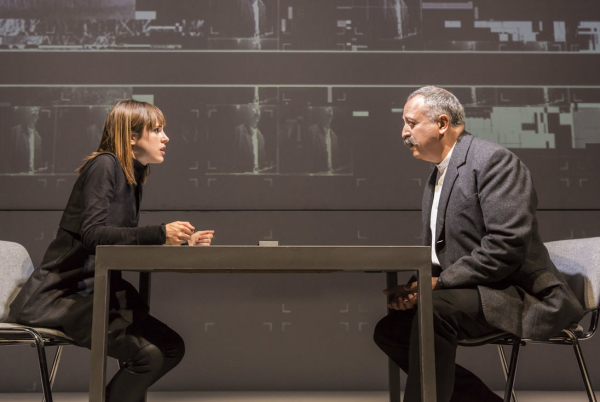
It's set in a virtual world?
It's set in the future. 'The Nether' is the evolution of what we now know is the Internet. So it's a separate realm of reality and what's happened between now and then is that the art of sensation has been engineered so that a user can fully step into this other environment. It's about the moral implications of that, because if you can feel, smell, taste and touch something 'virtual', where do you draw the line about what's appropriate and what isn't?
Do you think it presents a realistic vision of the future?
Without being in the future, I don't know. But it feels like a pretty good guess in that there's an understanding of what the environment might be up to, what the technology will have done, how the economy is focused. It feels convincing I think. We haven't gone down a sci-fi route; we've got to be really careful about creating something plausible. But it's about the idea really, rather than the delivery of it.
How important has the Royal Court been to you?
It's where I started. The first job I had in theatre was as [former artistic director] Stephen Daldry's assistant so it feels like I'm a fully paid up member of the Royal Court. Those two spaces, the Upstairs and Downstairs, are two of my favourite theatre spaces in the world. There is something really magical that can happen Upstairs, you can create a brilliant atmosphere and experience for the audience, while Downstairs is the quintessential space for looking at subjects, asking questions and getting a group of people to really consider something in a three dimensional way. I love that it's in Europe's richest borough but it represents voices from around the world. It feels like it's close to the establishment in all sorts of ways but its mission is to provoke and to ask questions to show the other side of the story. I've come and gone over the years but it feels like the Royal Court is a place I can return to, and it's an important partner for Headlong.
When a play lands on your desk, what are you looking for?
I want the play to be able to directly speak to the audience and to talk about what's happening in the world in a way that could change it; that's the only way of justifying a script. Either I see something ground-breaking in terms of form, like Duncan MacMillan's upcoming play People, Places, Things, or there is something politically apposite about how it talks about the past and what is happening in society at the moment, like Jack Thorne's Junkyard [both upcoming Headlong productions]. We're working on a whole range of commissions currently that are pushing forward all sorts of agendas.
Could you expand on that – what sorts of agendas?
I suppose it's about encouraging diversity and gender mix young new writers, making sure we hold our heads up to being part of a solution to a problem across British theatre. We have to be systematic about supporting those writers and finding opportunities for them and also to encourage early or mid-career writers to move up out of studio theatres into bigger spaces. I feel that's our responsibility as a company that takes shows around large scale venues.
How will you measure your success at Headlong?
By measuring the ambition versus the achievement, though the usual triangulation of audience, funders and critics. If you're honest with yourself I think you always know how close you got to your dream. When you see an audience it's clear when a production is communicating its integrity and if we can do that more often than not then that's a success; to create that strong sense of collective experience.
Can you put that dream into a nutshell?
If Headlong can be the bridge between investigative metropolitan work and an open-hearted intellectual populism then that will be a great thing. The company's mission is not easily defined. It's not exclusively a writers' theatre, but new writing is at the beating heart of it. There's something about providing a breadth of experience through the work. It needs to thrill and it needs to energise.
Would you like to run the National Theatre some day?
No thank you! But I think Rufus [Norris] is a brilliant director who will do a brilliant job and I look forward to seeing where he takes it.
The Nether is currently in previews at the Royal Court ahead of opening on Thursday (24 July 2014). It continues until 9 August.



